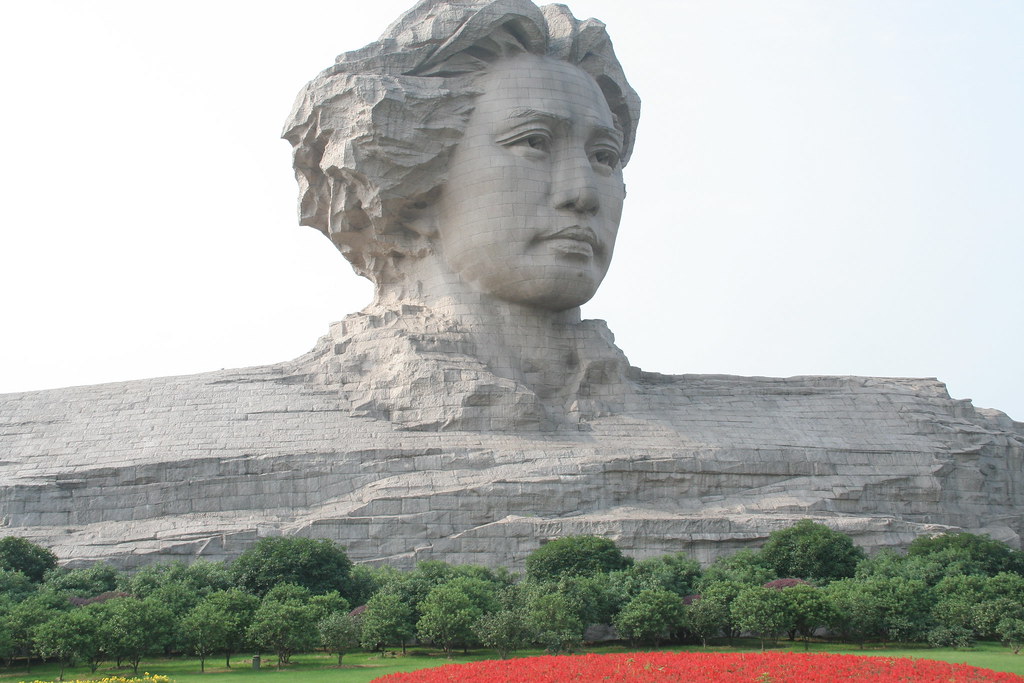
Alone I stand in the autumn cold
On the tip of Orange Island,
The Xiang flowing northward;
I see a thousand hills crimsoned through
By their serried woods deep-dyed,
And a hundred barges vying
Over crystal blue waters.
Eagles cleave the air,
Fish glide under the shallow water;
Under freezing skies a million creatures contend in freedom.
Brooding over this immensity,
I ask, on this bondless land
Who rules over man’s destiny?
I was here with a throng of companions,
Vivid yet those crowded months and years.
Young we were, schoolmates,
At life’s full flowering;
Filled with student enthusiasm
Boldly we cast all restraints aside.
Pointing to our mountains and rivers,
Setting people afire with our words,
We counted the mighty no more than muck.
Remember still
How, venturing midstream, we struck the waters
And the waves stayed the speeding boats?
Mao Zedong wrote this poem in 1925, when he was 31. He had previously spent five years in Changsha at university, young, bold and enthusiastic. Now he returned, reflected, remembering his student days, pondering the land’s immensity and the nature of destiny, and he wrote his poem. And today the young Mao gazes again at the river from Orange Island… or would, if it wasn’t just a stone statue of his head.
Despite his revolutionary tendencies in other areas, Mao wrote in Classical Chinese verse. ‘Changsha’ is annotated “to the tune of Chin Yuan Chun”, marking it as belonging to the type of verse called tzu. The tzu originated in the Tang Dynasty (618-907 CE) as lines sung to certain tunes. Each tune prescribes a strict tonal pattern and rhyme scheme, with a fixed number of lines of a standardised varying length. Obviously, a translation into a European language is going to lose the structural form inherent in the original. Mao may not be one of the best Chinese poets, but his poems are generally considered to have literary quality. Arthur Waley, the eminent British translator of Chinese literature, however, described Mao’s poetry as “not as bad as Hitler’s paintings, but not as good as Churchill’s.”
Photo: “A young Chairman Mao” by timzachernuk is licensed under CC BY-NC 2.0